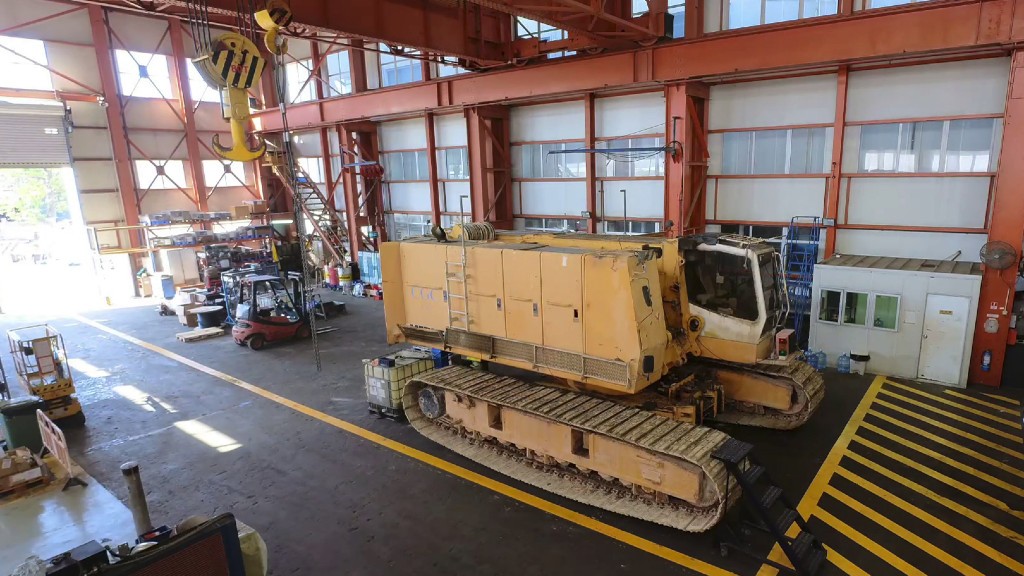Ontario cement plant wins award as international leader in reducing energy costs and consumption
St Marys Cement Inc. plant in Bowmanville, Ontario is a continent-wide leader in energy efficiency and conservation for manufacturers of cementitious material

Community leaders and St Marys Cement Inc. executives were on hand to celebrate St Marys Cement -- Bowmanville Plant receiving the Gold Award Certification in Energy Excellence.
Certification in Energy Excellence is a program which tests an organization’s energy management processes and performance, and is one of the most thorough programs in the world. Over 160 energy management criteria, based on world-class best practices, are assessed. The program is independently moderated and validated by the United Kingdom’s National Energy Foundation.
St Marys is being recognized for its world class energy conservation performance and its success at integrating energy management in all aspects of its operations. To date, the Bowmanville Plant's approach to energy management has added $10 million to its bottom line. The Plant is again on pace this year to reduce its energy bill by $1 million. These savings are achieved though an integrated and carefully balanced approach of smart energy buying, matching energy-intensive plant operations with off-peak rates, common sense energy conservation practices and other plant-based energy initiatives.
Travelling from his home-base in the United Kingdom, John Pooley, Chief Assessor for the Certification in Energy Excellence, presented St Marys Cement -- Bowmanville Plant with the Award.
Mr. Pooley noted, "The Bowmanville facility is one of the largest cement plants in North America with a rated capacity of over 1.8 million metric tonnes of product. As we all know, cement plants consume significant amounts of energy, but few other industrial operations in the world have come close to achieving the same level of integration in energy savings.
" Marty Fallon, CEO of St Marys Cement, Celso Martini, VP Cement Operations, and Fabio Garcia, Manager of Plant Operations, accepted the award on behalf of St Marys.
Mr. Fallon observed, "St Marys is extremely proud of the effort, ingenuity and technical expertise deployed by the men and women working here to achieve the direct savings and establish systems to keep our energy purchase prices as low as possible. The energy reductions at this plant are getting more and more attention as a benchmark in sustainability criteria for the entire sector. In fact, next year this plant will be the featured site visit during the 2015 North American Cement Industry Conference."
"This award would not be possible without the efforts of the Bowmanville Plant staff, their dedication and commitment has made this a shared success," noted Celso Martini . He went on to say, "It is also important to recognize the positive roles of the Ontario Power Authority (OPA) and the Independent Electrical System Operator (IESO). An important early step was to engage 360 Energy of Ancaster Ontario to help us become the first industrial operation of any type in North America to achieve ISO 50001 certification."
St Marys Cement -- Bowmanville Plant Manager Fabio Garcia concluded by saying, "Let me repeat, without cooperation and buy-in from the entire St Marys team this could not be accomplished. I want to especially commend the energy management and conservation committee, that we call E=MC2. With representatives from Finance, HR, Environment, Quality Control, Maintenance, Mining and Production departments, the committee identified and acted upon over 100 separate energy efficiency initiatives. The magic of the E=MC2 approach was many of the energy savings required little capital expenditure or were done at no cost."
Since the committee’s inception, St Marys Cement -- Bowmanville Plant has reduced energy usage by a total of 171,429 MW, which is sufficient to provide power to 3,819 homes. This energy savings lowered CO2 emissions by 31,886 tonnes, equivalent to the removal of 9,135 cars from the roads.


